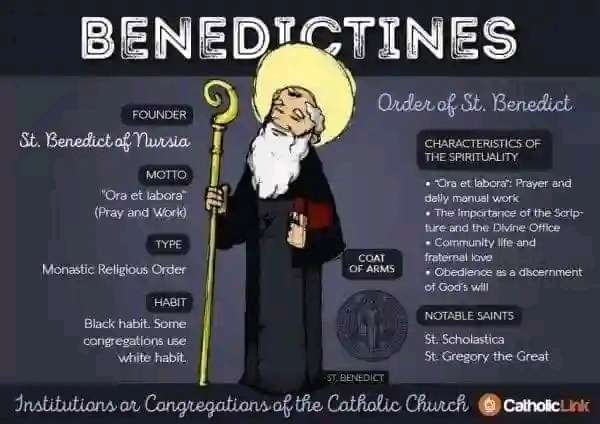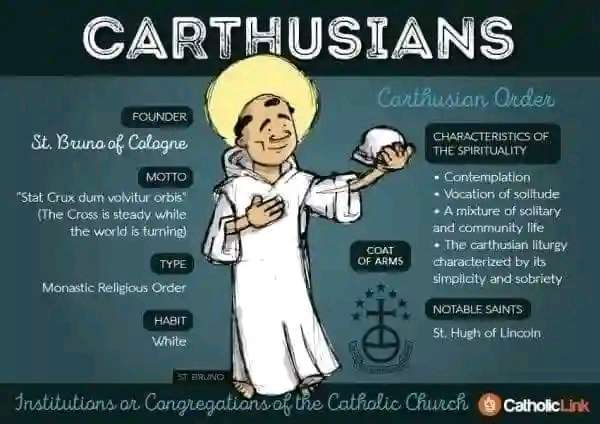CATHOLIC RELIGIOUS ORDERS:
Catholic religious orders are one of two types of religious institutes ('Religious Institutes', cf. canons 573–746), the major form of consecrated life in the Roman Catholic Church.
They are organizations of laity and/or clergy who take solemn vows (in contrast to the simple vows taken by the members of religious congregations) and who live a common life following a religious rule or constitution under the leadership of a religious superior.
According to the Annuario Pontificio, there are four branches of religious orders:


* Monastic Orders:
orders founded by monks or nuns who live and work in a monastery and recite the divine office.


* Mendicant Orders:
orders founded by friars or nuns who live from alms, recite the divine office, and have active participation in apostolic endeavors.


* Canons Regulars:
orders founded by canons and canonesses regular who recite the divine office and generally are in charge of a parish.


* Clerks Regulars:
orders founded by priests who are also religious men with vows and have a very active apostolic live.
Their intention is to imitate Jesus more closely, mainly, but not exclusively, by observing evangelical chastity, poverty, and obedience, which are the three evangelical counsels of perfection (cf. canons 599–601).
They bind themselves to this form of living by taking public vows in accordance with the norms of church law.
They may additionally profess to obey certain guidelines for living, since each order has its peculiar charism.
Religious vows are to be distinguished from Holy Orders, the sacrament which bishops, priests, and deacons receive.
Hence, members of religious orders are not part of the hierarchy, unless they are also ordained priests or deacons (sometimes referred to as "priest-monks" or "hieromonks" - a term more commonly found among the Orthodox than among Roman Catholics).
Religious orders only differ from religious congregations in the nature of their vows (solemn vs. simple), since today much of their way of live and apostolates don't differ much.
Even though the names are used interchangeably, technically, they are not the same.
▪Religious rules
Religious orders generally follow one of the four great religious rules:
1) Rule of St. Basil,
2) Rule of St. Benedict,
3) Rule of St. Augustine, and the
4) Rule of St. Francis.
For example, a large number of the religious orders in the Catholic Church (Benedictines, Trappists, Cistercians, etc.) observe the Rule of St Benedict, a collection of precepts for what is called contemplative religious life;
Others follow the Rule of St Augustine that stress self-denial, moderation, and care for those in need,
Whereas the Rule of St. Basil, one of the earliest rules for Christian religious living, tends to be followed by monastic communities of the Orthodox Church.
In addition, the individual Orders have their own regulations for the practical living out of their chosen Rule so as to be able to serve their own Order's charism more fully.
▪Authority structure
A Religious Order is characterized by an authority structure where a superior general has jurisdiction over the order's dependent communities.
An exception is the Order of St Benedict which is not a religious order in this technical sense, because it has a system of "independent houses", meaning that each abbey is autonomous. However, the Constitutions governing the order's global "independent houses" were approved by the pope.
Likewise, according to rank and authority, the abbot primate's "position with regard to the other abbots [throughout the world] is to be understood rather from the analogy of a primate in a hierarchy than from that of the general of an order like the Dominicans and Jesuits."
